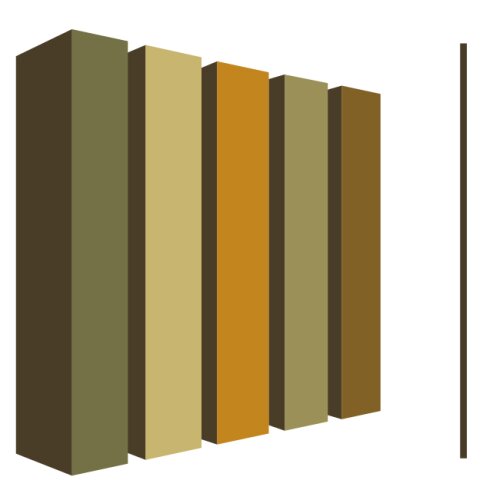Best Foreclosure Lawyers in Philippines
Share your needs with us, get contacted by law firms.
Free. Takes 2 min.
Free Guide to Hiring a Real Estate Lawyer
Or refine your search by selecting a city:
List of the best lawyers in Philippines

Dagsaan Monterde Castillo Law and Notary Public (DMC LAW)
15 minutes Free ConsultationAbout Foreclosure Law in Philippines
Foreclosure in the Philippines is a legal process where a lender attempts to recover the balance of a loan from a borrower who has stopped making payments by forcing the sale of the asset used as the collateral for the loan. This is common in real estate where the property is foreclosed and sold to pay off the outstanding loan balance. In the Philippines, foreclosures can take the form of judicial, extrajudicial, or a dation in payment (dación en pago) arrangement, each governed by specific regulations. The process is overseen by a combination of rules set out in the Civil Code, special laws, and guidelines implemented by financial institutions and courts.
Why You May Need a Lawyer
Engaging a lawyer is crucial in several foreclosure-related situations. Here are common scenarios where legal assistance could be beneficial:
- Understanding Complex Legal Terms: Foreclosure involves complex legal terminologies and understanding these is important for borrowers to protect their rights.
- Negotiating Terms: A lawyer can help negotiate payment terms or a possible adjustment of your loan before foreclosure proceeds.
- Disputing a Foreclosure: If you believe the foreclosure is unjust or mishandled, legal representation is essential to defend your case and protect your home.
- Filing for Bankruptcy: Under certain conditions, bankruptcy could be a more favorable option, and a lawyer can explain the implications for your foreclosure process.
Local Laws Overview
The laws governing foreclosure in the Philippines are designed to balance the interests of borrowers and lenders. Key legal frameworks include:
- Act No. 3135: Governs extrajudicial foreclosure of real estate mortgages, allowing the sale of property under a power of sale clause without court proceedings.
- Act No. 1508: Also known as the "Chattel Mortgage Law," applies to moveable properties and sets rules for their foreclosure.
- The Civil Code: Provides regulations on contracts and obligations which affect the handling of mortgages and foreclosure.
- Special Laws: Include laws specific to housing and urban development that may affect foreclosure procedures and the rights of occupants.
Frequently Asked Questions
What are the two main types of foreclosure in the Philippines?
The two main types are judicial foreclosure, which is done through court action, and extrajudicial foreclosure, which is conducted out of court usually based on a deed of sale with a mortgage known as a "real estate mortgage."
Can I recover my property after it has been foreclosed?
Yes, the borrower has what is called a "right of redemption" which allows them to redeem the property within a certain period, typically one year after the foreclosure auction, by paying the full amount of the loan plus interest and expenses.
What is dation in payment or "dación en pago"?
This is an alternative to foreclosure where the borrower voluntarily transfers the ownership of the asset to the lender to settle the debt.
Do I have to vacate immediately after the foreclosure sale?
After foreclosure, there might be a grace period known as a redemption period. Until the period lapses, you are not obliged to vacate the property immediately.
How is a foreclosure sale conducted?
A foreclosure sale, especially in extrajudicial foreclosures, is conducted through a public auction where the property is sold to the highest bidder.
What happens if there are no bidders at the foreclosure auction?
If there are no bidders, the property is declared sold to the lender who foreclosed it, usually for the amount of the remaining mortgage debt.
Can the lender pursue other assets if the foreclosure sale does not cover the debt?
Yes, if the sale proceeds do not cover the outstanding debt in full, lenders may obtain a deficiency judgment against the borrower to cover the shortfall.
What should I do if I receive a foreclosure notice?
Contact your lender immediately to discuss possible alternatives and consult with a lawyer to understand your options and rights.
Can I stop a foreclosure process?
Yes, by catching up on your payments or negotiating with the lender for a loan modification, it is possible to stop or delay foreclosure. Legal advice can assist in determining the best approach.
What are the lender's obligations during the foreclosure process?
Lenders must adhere to legal notification procedures, act in good faith throughout the process, and conduct sales in a transparent manner.
Additional Resources
The following resources can be helpful for those seeking information on foreclosure:
- Housing and Land Use Regulatory Board (HLURB): Offers guidance on housing and development regulations.
- Bangko Sentral ng Pilipinas (BSP): Provides guidelines on financial transactions and mortgage regulations.
- Department of Justice (DOJ): Ensures that foreclosures are conducted according to legal standards and protects consumer rights.
Next Steps
If you believe you are facing foreclosure or are currently in the process, it is advised to:
- Consult with a Lawyer: Engage a lawyer who specializes in foreclosure to help navigate the situation.
- Contact Your Lender: Attempt to renegotiate your loan terms or explore modification options.
- Review Legal Documents: Carefully review the terms and conditions of your mortgage and any notices you receive.
- Consider Financial Counseling: Seek advice from financial counselors who can provide budgeting and financial planning support.
By taking proactive steps and seeking professional advice, you can better manage the challenges of foreclosure and protect your rights and interests.
Lawzana helps you find the best lawyers and law firms in Philippines through a curated and pre-screened list of qualified legal professionals. Our platform offers rankings and detailed profiles of attorneys and law firms, allowing you to compare based on practice areas, including Foreclosure, experience, and client feedback.
Each profile includes a description of the firm's areas of practice, client reviews, team members and partners, year of establishment, spoken languages, office locations, contact information, social media presence, and any published articles or resources. Most firms on our platform speak English and are experienced in both local and international legal matters.
Get a quote from top-rated law firms in Philippines — quickly, securely, and without unnecessary hassle.
Disclaimer:
The information provided on this page is for general informational purposes only and does not constitute legal advice. While we strive to ensure the accuracy and relevance of the content, legal information may change over time, and interpretations of the law can vary. You should always consult with a qualified legal professional for advice specific to your situation.
We disclaim all liability for actions taken or not taken based on the content of this page. If you believe any information is incorrect or outdated, please contact us, and we will review and update it where appropriate.
Browse foreclosure law firms by city in Philippines
Refine your search by selecting a city.
















